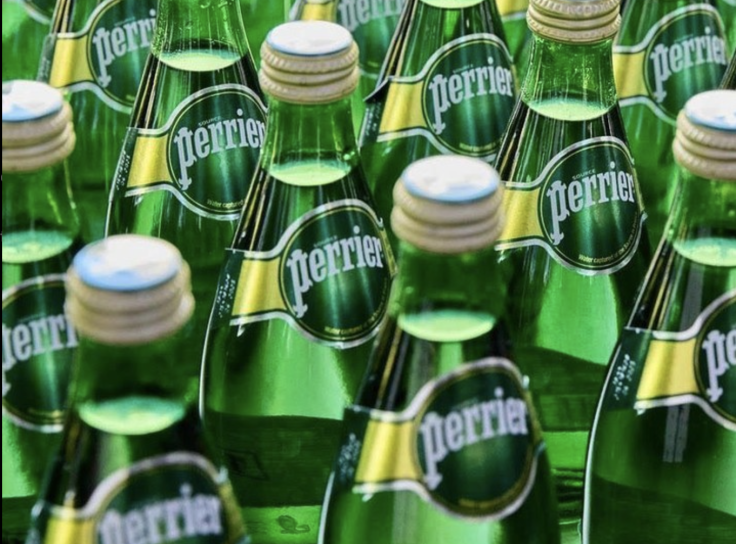
Have you had a cold glass of Perrier recently? Not to alarm you, but there's a big chance you might have just drunk a beverage with bacteria "of faecal origin."
This is the dilemma currently faced by Perrier, a renowned mineral water brand with a long-standing history and a significant market share in the bottled water industry.
The brand finds itself in hot water after French officials demanded that the company stop using one of its wells in Gard, South of France, due to contamination concerns.
According to a report, the revelation of bacteria of faecal origin has sparked a wave of preventive measures and public apprehension.
As Perrier, one of food giant Nestle's subsidiaries, grapples with the fallout, questions arise about the safety of bottled water and the efficacy of its regulatory oversight.
Impact on Operations
The French state's request for Perrier to halt the use of the contaminated well underscores the seriousness of the situation. The brand's compliance wasn't the only "solution" carried out; the company was also asked to dispose of two million bottles, equivalent to several hundred pallets, just to be sure.
This disposal process, which involves careful handling and proper waste management, is a significant logistical and environmental challenge for the company.
While Perrier has not disclosed the exact nature of the contamination, the presence of bacteria "of faecal origin" is deeply concerning. These pathogens, if ingested, can pose significant health risks, ranging from gastrointestinal illnesses to more severe complications, potentially affecting the health of those who have consumed the water.
Despite reassurances from Nestlé, Perrier's parent company, about the safety of bottles already on the market, the discovery raises doubts about the entire supply chain and quality control processes.
Perrier, however, has taken immediate action to address the issue, including halting the use of the contaminated well and disposing of potentially affected bottles, demonstrating their commitment to consumer safety.
Safety Questions
The incident raises broader questions about the safety and regulation of bottled water. Instances of contamination, whether due to natural sources or human error, undermine the perception of bottled water as a safer alternative.
This underscores the crucial role of regulatory bodies such as the Food and Drug Administration (FDA) and the European Food Safety Authority (EFSA) in upholding rigorous standards and ensuring the integrity of bottled water products.
The incident has also drawn the attention of several French media outlets, further highlighting the need for stronger regulatory oversight.
In this case, the discovery of faecal bacteria in Perrier's well highlights potential vulnerabilities in monitoring and managing water sources. Despite stringent protocols, no system is foolproof, and lapses can occur, putting public health at risk.
The incident serves as a wake-up call for the industry to reevaluate practices and prioritize investments in technologies that enhance detection and prevention capabilities, thereby mitigating risks more effectively.
Per the report, this is not the first time Nestle has been asked to respond to contamination issues with its various water brands. They were also asked to address non-compliance with water treatments done for Vittel, Contrex, and Hépa.
As for Perrier, people are anxious as well. Their well in Vergeze, which has provided the company with water since 1903, is believed to be compromised due to the use of prohibited treatments to maintain water quality.
The broader implications of the Perrier contamination extend beyond the company itself. It serves as a cautionary tale for the bottled water industry, emphasising the need for vigilance and accountability.
Regulatory bodies must strengthen oversight to ensure compliance with safety standards, while manufacturers must prioritise investments in infrastructure and technology to mitigate risks effectively.
The incident also raises questions about the long-term trust and confidence of consumers in the bottled water industry, which could have significant economic and public health implications.
The Perrier water contamination scare serves as a sobering reminder of the fragility of our water systems and the importance of robust safety measures.
While Perrier and its consumers may feel the immediate impact, the incident highlights systemic issues that warrant broader attention and action.
By learning from this experience and taking proactive steps such as investing in advanced water testing technologies, implementing stricter quality control measures, and enhancing transparency in the supply chain, we can strive towards a future where safe, accessible water is a universal right.







